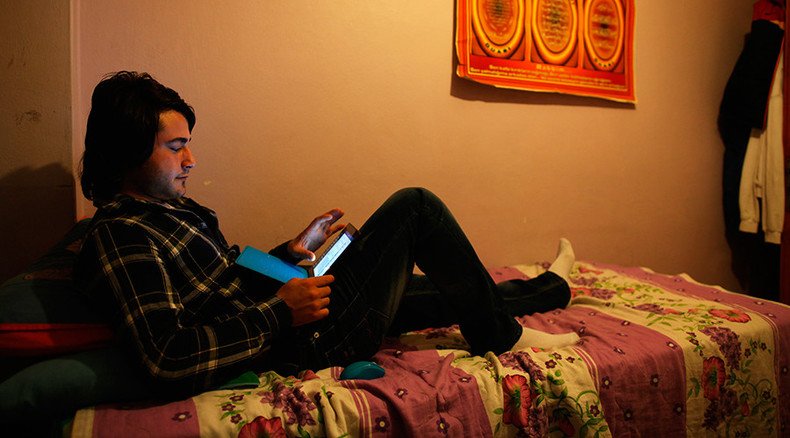European Parliament missed 'perfect protection' in net neutrality ruling

The net neutrality law is a big win, says Bits of Freedom representative Rejo Zenger. Some protection is better than none, and unfortunately it could have been perfect protection which has not been approved, he adds.
European Parliament this week has voted for a package of EU internet traffic regulations, while rejecting amendments on net neutrality. Opponents say the legislation will stifle growth and innovation, as not all network traffic will be treated equally.
Net neutrality is a principle that says all internet traffic should be treated equally – from big corporations to the average home user.
READ MORE: EU Parliament rejects amendments protecting net neutrality
RT: What does voting in the European Parliament mean for EU citizens?
Rejo Zenger: What it means is that for European member states and citizens there will be protection of the principle of net neutrality. And net neutrality means that an internet service provider (ISP) is not allowed to discriminate against certain types of traffic. All traffic needs to be handled in the same way. And this is very important because that means that the end user has a freedom to decide what he does on the internet instead of that the ISP is deciding for the user. And that is very important, amongst other things innovation, as new companies have the same way to connect to end users as the existing companies already have.
'Stifle growth' - net neutrality advocates on EU Parliament rejection vote https://t.co/DRxg2dNb9vpic.twitter.com/kTdPnwGbRG
— RT (@RT_com) October 27, 2015RT: Do you see anything positive in the law adopted?
RZ: Yes, it protects net neutrality and is a win for most of the member states because they had not any protection at all until this law. However, for the Netherlands, it is different. The Netherlands already had net neutrality protected by law for the last couple of years. And this European regulation is less strong, is weaker than the current Dutch legislation. So, for the Dutch it is a step back, but for all the other EU member states it is a big win.
Will your MEPs will be backing amendments to Single Telecom Market regulation today? #netneutrality#SaveTheInternetpic.twitter.com/Ze084uX2Ar
— Francis Clarke (@francisclarke) October 27, 2015RT: Why has the EU Parliament refused all the amendments to the law?
RZ: It is a bit of a mixed story. On the one hand, it is true that all the amendments which would fix the four large loopholes which were identified – those amendments were not passed. But then again, there is still now regulation which protects net neutrality to a certain level. And that is an improvement if you have been among member states that did not have any protection at all. So, it is very good that net neutrality is protected. But by not having accepted those amendments a very strong net neutrality is unfortunately not available.
Fast lanes, slow lanes and a lot of roadside recovery. Net neutrality vote in Europe #netneutralityhttps://t.co/H5WoT4AH6w
— Pete Mac (@thepetemac) October 27, 2015RT: The creator of the World Wide Web stated that these rules will threaten innovation, free speech and privacy. In what way?
RZ: It is true in a sense that without those four loopholes fixed the protection is not 100 percent. There is some protection, but the protection that has been approved is not the full protection we could have had as well. That is because the European Parliament rejected those amendments. So, in a sense, Tim Berners-Lee is right if he says that the current law is threatening innovation. But on the other hand, the current law is better than most countries had until today – because they didn’t have any protection at all. Some protection is better than none, but, unfortunately, it could have been perfect protection which has not been approved.
The statements, views and opinions expressed in this column are solely those of the author and do not necessarily represent those of RT.












